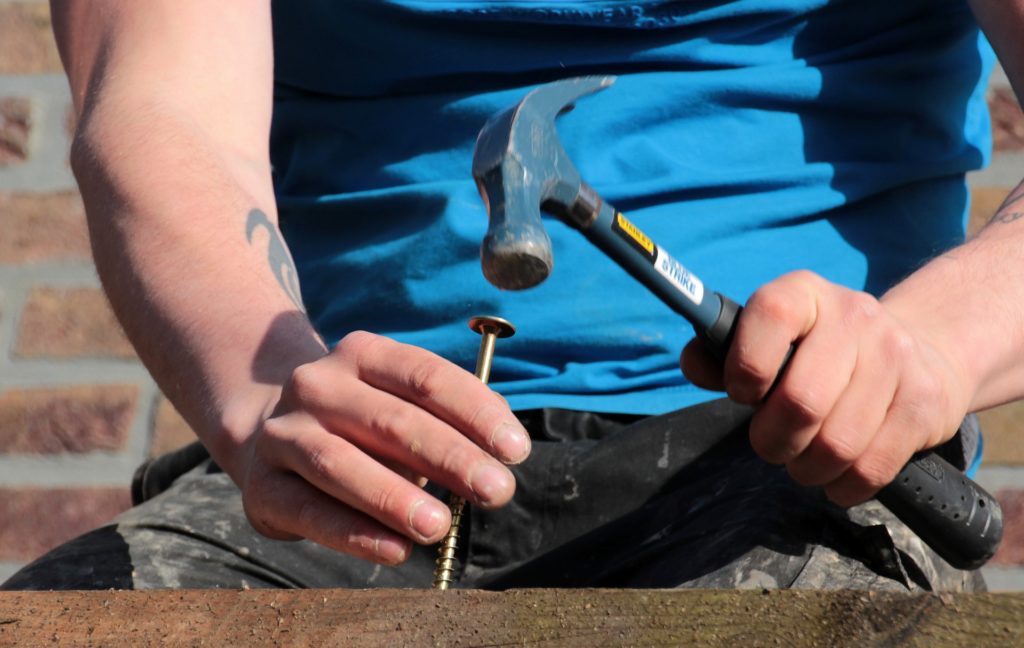
I was driving down the 10 freeway here in Los Angeles the other day (recently) and saw an interesting sign.
Freeways in Southern California usually have large electronic signs every few miles that announce important but usually boring (uninteresting) information about road conditions (whether the freeways are slow, construction projects, etc.).
The one I saw was different. It said: Drive Hammered, Get Nailed
This expression is what we would call a “play on words,” or a pun. A pun is when you use a word with more than one meaning to make a joke.
To get hammered means to get very drunk, when you drink too much alcohol.
But a hammer is also a tool we use to pound or hit something, such as a small, thin piece of metal called a nail (see photo). We also use to hammer as verb.
So “Drive Hammered” means “Drive Drunk,” but it also makes you think of the other meanings, and this is where the joke comes in (appears; is seen).
To get nailed means to be hit by a hammer, but it also means to get caught.
For example, if the police see you driving too fast, they will pull you over (make you stop your car) and give you a ticket. You “got caught” speeding, and therefore “got nailed.”
“Get Hammered, Get Nailed,” then, means if you drive drunk, you will get caught.
Now, there are actually more meanings of both of these expressions in English.
If a politician or government official is being “hammered by questions” from the press, it means they are asking lots and lots of questions.
“To nail” can also mean to get something right, or to do something perfectly: “He scored the winning goal in last night’s soccer game. He nailed it!”
To hit the nail on the head (the top part of the nail) means to describe a situation accurately, to figure out the real importance of something: “When you mentioned (said) the part about my sister, you hit the nail right on the head. That’s exactly her problem!”
As a noun, nail also refers to the hard tip or end on the top of your fingers and toes. We call these “fingernails” and “toenails,” logically enough!
~Jeff
P.S. Want to start improving your English? Try a FREE 30-minute English lesson.
- Do you have difficulties remembering the “right” word when speaking in English?
- Do you have to stop and think about everything you want to say in English?
- Do you get lost when someone speaks English quickly to you?
Then you need to try one of our Unlimited English lessons from ESLPod.com!
Used by more than 1.27 million people in 189 countries, our Unlimited English lessons are designed to help you understand English so you can speak it.
Just fill out the form below and we’ll send a FREE lesson to try!
We hate spam, too! We will never sell, rent, or give your information to anyone – ever!
What Will I Learn in My Free Lesson?
Here is just a small part of what you’re going to learn in this free lesson:
- What “take a rain check” means and how to use it in a conversation . . .
- The difference between a “recluse” and a “busybody” . . .
- Why “to fend OFF” means something from “to fend FOR” . . .
- What it means to “take a rain check,” “keep to yourself,” and “to appoint (someone)” . . .
- What a social secretary is . . .
- The best way to use “to sort out” and “to turn down” . . .
- How to use phrasal verbs like “to settle in” and “to settle down” (they’re not the same!) . . .
And much, much more!